European elections: ‘Since Brexit, Switzerland can no longer cherry-pick’
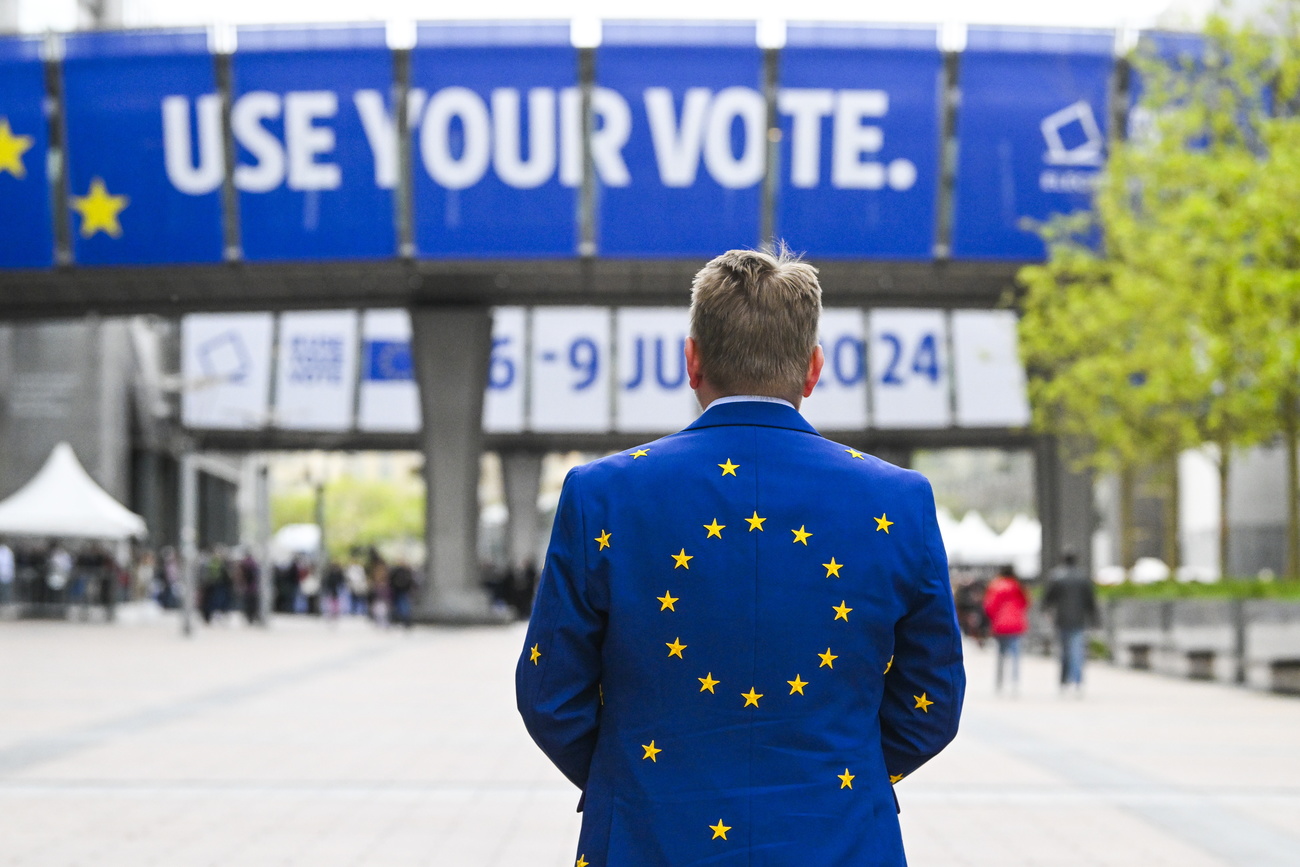
Political scientist Giorgio Malet has examined how Brexit affects the desire in other countries to leave the European Union. In an interview, Malet talks about the upcoming European elections, the rise of the radical right and bilateral relations with Switzerland.
It sounds obvious: when Brexit looked like a successful project, more people in other European Union countries were also toying with the idea of leaving. This has since changed. Giorgio Malet has examined the correlation between these two trends.
The political scientist specialises in European politics and democratic representation at the federal technology institute ETH Zurich.
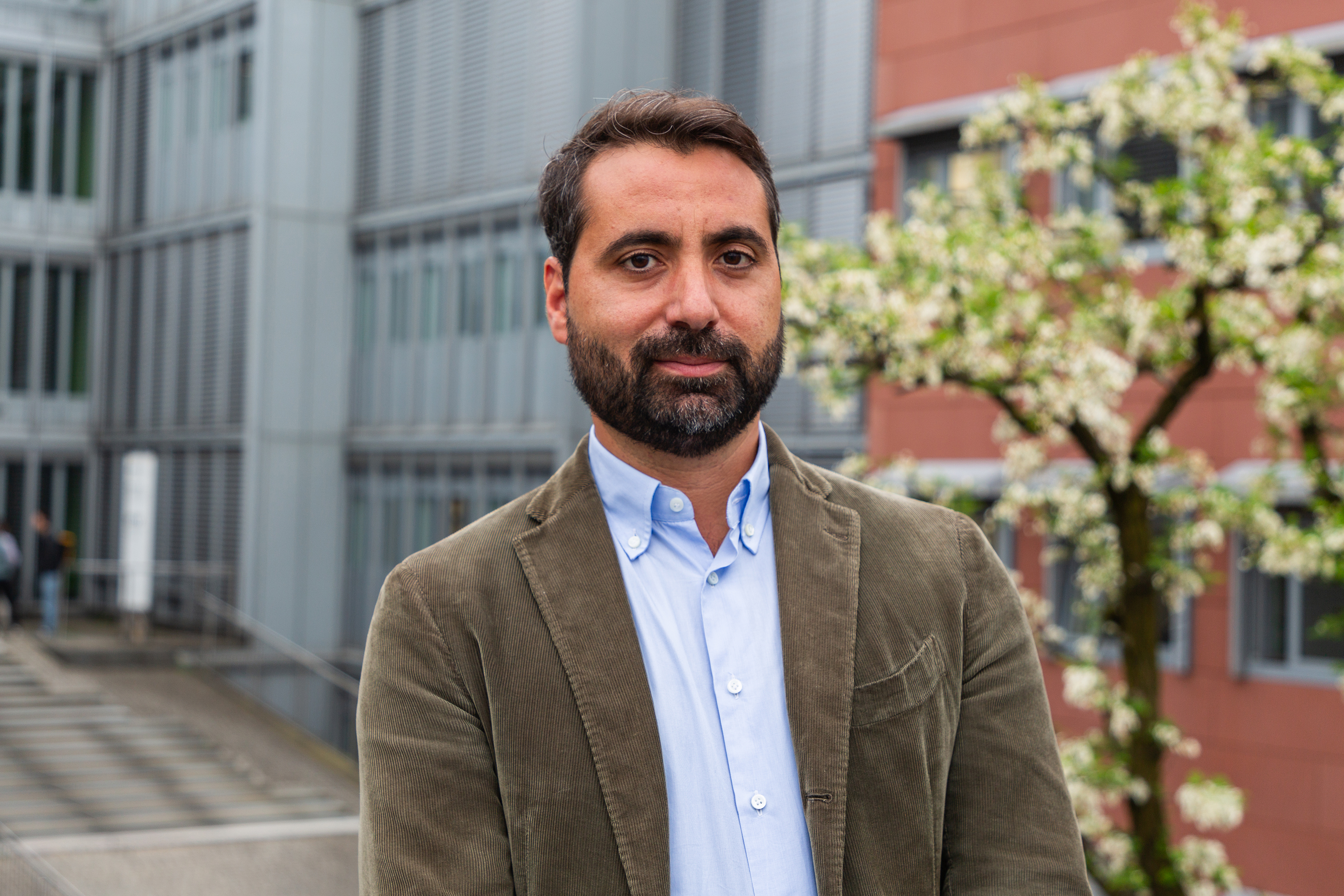
In an interview, Malet also describes his perspective on the EU debate in Switzerland and his expectations for the EU parliamentary elections, set for June 6-9.
SWI swissinfo.ch: Together with Stefanie Walter, you’ve looked at how developments in British politics during Brexit shaped how people in other parts of Europe were thinking about an exit strategy from the European Union. When was the last time leaving the European Union was a trend?
Giorgio Malet: Directly after Brexit, and then [the trend] declined. Right after Brexit, many other parties across Europe called for a similar initiative to make their country withdraw from the European Union. But the momentum of those advocating for an exit slowed down and the reverberations of BrexitExternal link became very different. We saw how the negotiations were not going very well for the British side, and in the rest of Europe public support for the EU was growing.
SWI: Most people in Europe have not followed the Brexit negotiations very closely. How is it that there is still this connection?
G.M.: We think they learned by looking at the politics, and not at the policy effects. As we showed in our research, certain events in British politics made the news and had an impact on people’s sympathy towards the EU. If you look at one event, for example, when former British Prime Minister Theresa May’s government lost a parliamentary vote on the withdrawal agreement, people in the rest of Europe became less Eurosceptic.
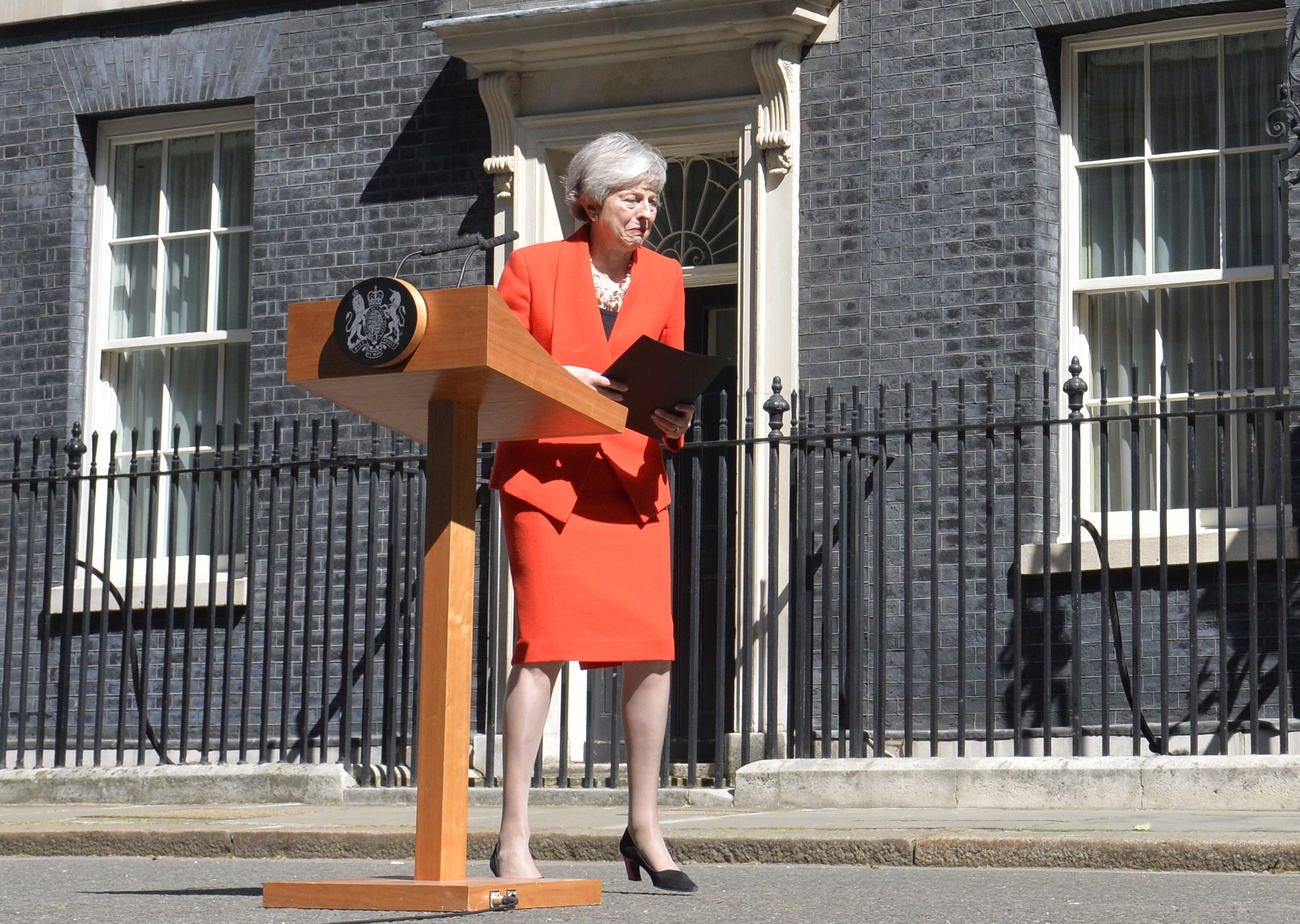
The effects tend to be small but they have a cumulative effect. Failure after failure, people started to change their opinions. British domestic politics signalled to European voters that it was difficult to implement an exit.
SWI: Do voters also look at domestic political developments abroad when it comes to other issues?
G.M.: It happens more and more as foreign events get reported in the news. For example, when you experience an economic crisis, you tend to be more forgiving of your government when you see other countries are in crisis too.
There are other examples where this was researched. One study describes, for example, how referendums on migration issues in Switzerland have an impact on German media coverage of immigration. And there was this paper that showed how after the election of Donald Trump, openly racist sentiments in Europe grew, as some people felt they didn’t have to hide their latent racism anymore.
SWI: You are part of the DisintegrationExternal link research project. You are investigating how the UK’s withdrawal from the EU is taking place and whether the Swiss want to cut ties with the EU. But Switzerland is a different case. It never joined the EU, so it probably has fewer ties and entanglements.
G.M.: In the Brexit negotiations, it became important to EU leaders to set an example that you can’t just leave and then cherry-pick the kind of cooperation you want. So the Swiss negotiators found much tougher EU negotiators after Brexit.
Switzerland is formally not a member state, but it is fully integrated in the EU. In some cases, for example, the Schengen agreement, Switzerland was more part of the EU than the UK was.
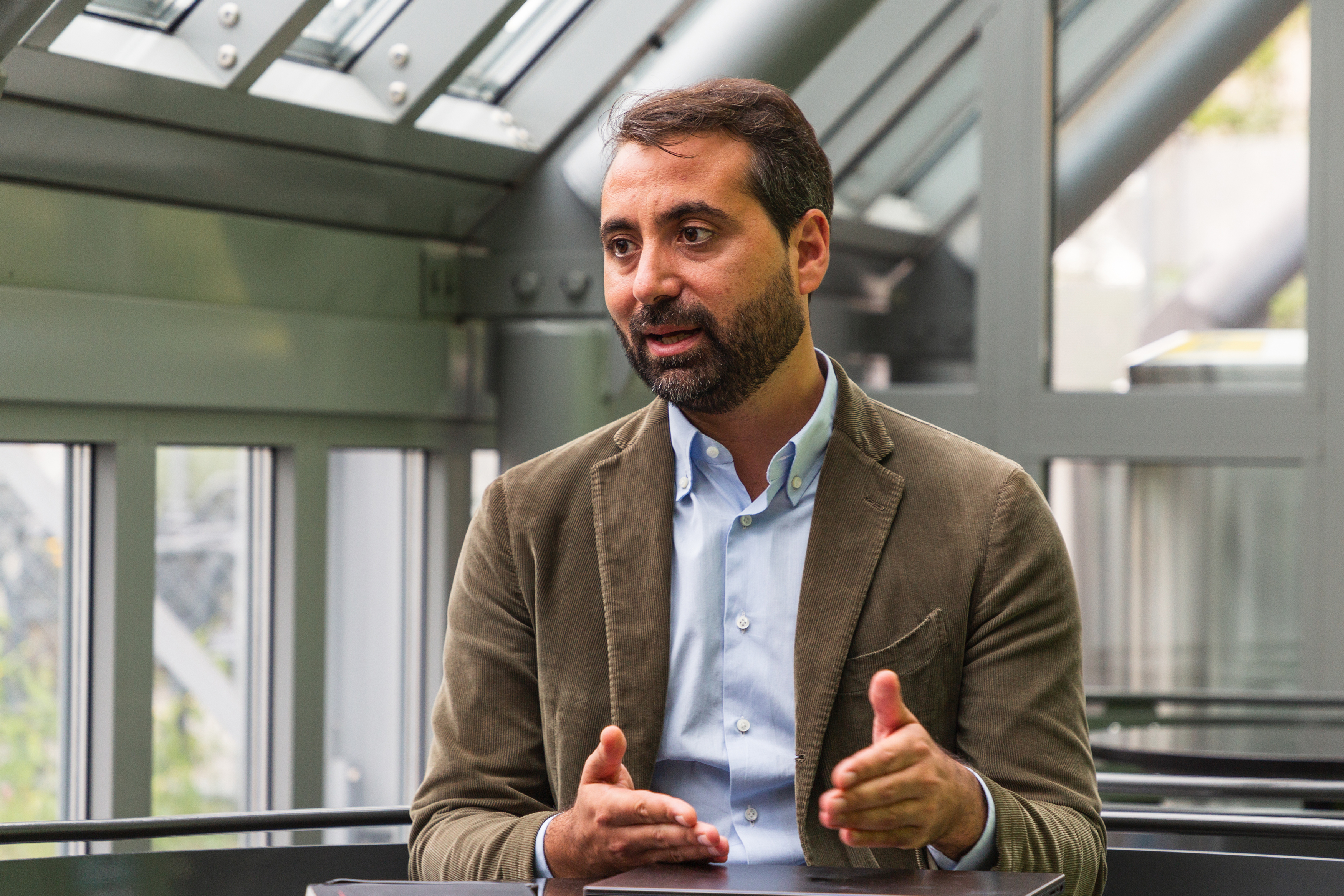
The EU made quite clear to Switzerland that cherry-picking is not an option anymore. The erosion of the current bilateral treaties will slowly mean that the relationship between Switzerland and the EU will deteriorate. This will have consequences in the medtech industry, the energy sector – it already had strong consequences for universities. So Switzerland has to ask itself where it wants to be in 30 years in a world becoming more and more interdependent.
SWI: However, at least according to public opinion, Switzerland is not in favour of more European integration.
G.M.: First of all, the media coverage of Swiss relations with the EU – and of the EU in general – is very low in Swiss debate. I was surprised when I arrived here from Italy that such a major issue is hardly discussed. Mostly the reporting that exists covers the EU in a negative way. It’s very slanted and biased – possibly because this creates attention. The consequence of that is a long-term absence of pro-EU actors in Swiss debates. Apart from [the pro-Europe political movement] Operation Libero, only a few speak up. Most fear to say what they think.
SWI: Do these people tell you that? Or how do you know that?
G.M.: That is my observation and impression. Politicians are not only elected to respond to the demands of their voters, but also have the duty to convince voters when they believe that some policies can be beneficial to them – for example, a strong cooperation with the EU.
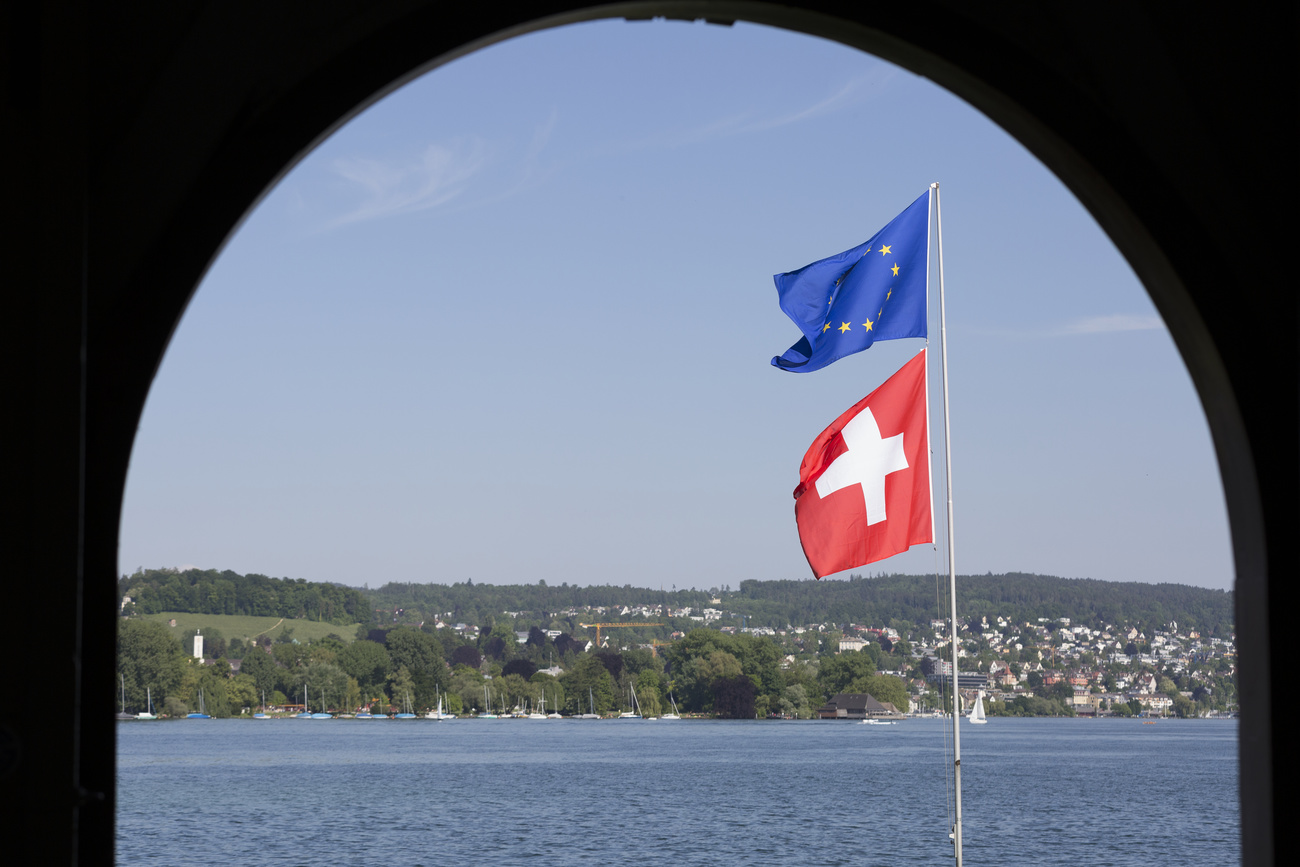
SWI: What would Switzerland gain from greater European integration?
G.M.: My point is that Switzerland is already integrated in so many regards, and if relations with the EU deteriorate, then many sectors would lose ground.
SWI: Anyone who is against closer ties with the EU, like the right-wing Swiss People’s Party, is saying the same thing: Switzerland is already so strongly integrated. Opponents fear that Switzerland will enter the EU through a back door.
G.M.: The point is that the EU is at the table with many partners. The EU has to agree on rules together and needs everybody to respect those very same rules. Switzerland wants to keep the possibility of saying no on a single-issue basis, but this is not how international cooperation works. It involves multi-level agreements on multiple issues. In addition, let’s not forget that in order to trade with the EU, Switzerland already has to accept many regulations without having a say in the EU’s policymaking.
SWI: What do you expect from the upcoming European elections?
GM: Most simulations at the moment show that the radical right will be the net winner. Social democrats, liberals and the left will lose some seats. The conservatives are expected to be stable.
SWI: So if the radical right wins the election, won’t they start dismantling the EU?
GM: They won’t be able to, as the governing coalition of conservatives, social democrats and liberals will most likely remain the same. Policy-wise it’ll have an impact on immigration and environmental politics – already now, the radical right and conservatives block stuff, such as the European Green Deal. Probably the conservatives will become more divided from within, between those open to collaborating with the radical right and those who want to isolate them.

More
Why is Switzerland not in the European Union?
SWI: You seem to expect stability, all in all.
GM: I don’t know whether I would call it stability. But it’ll go on. The way European integration moved in the last decades has a pattern of failing forward. You have a crisis. Governments agree on a solution. Governments have diverse preferences and diverse domestic situations, so they agree on the least common denominator. It’s never a perfect solution, but it’s always pushing a bit forward. When an agreement is found, its incompleteness sooner or later generates another crisis.
SWI: Is this unique to the EU?
GM: It’s unique in the sense that the EU is the most advanced form of international cooperation. And in the long term, it’s impressive what Europe has achieved: a massive integration. Sovereign states agreed in a relatively short time to give away authority to a supranational institution. You can see younger people feeling much more European than older people. You can’t change people’s identities in a week or in ten years. A large – although mostly well-educated – part of the population is enjoying the benefits of European integration: living, working, studying, and trading abroad. This is the long-term view. Short- and mid-term, this pattern of failing forward – balancing from crisis to crisis – undermines the EU’s economic output and its popular legitimacy.
SWI: And how can the EU get out of this vicious circle?
GM: It is really hard. Within the EU, one country has the right to veto a decision for all of them. One idea would be to create a Europe of different speeds: bring the countries together that want to sign up for more cooperation and move forward with those. It’s something Europe has done before, but it’s time to step up the process.
Edited by David Eugster.
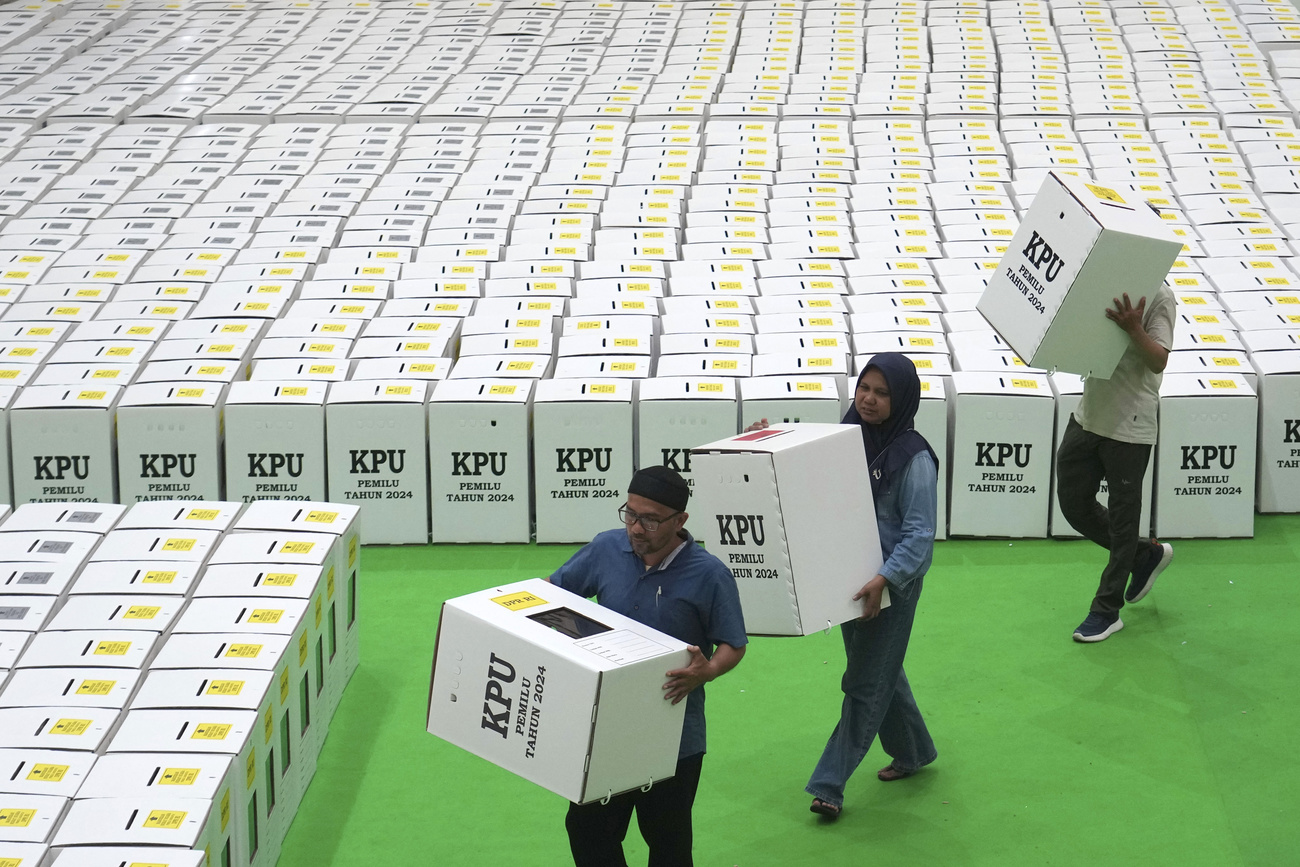
More
Save the dates: a ‘year of democracy’

In compliance with the JTI standards
More: SWI swissinfo.ch certified by the Journalism Trust Initiative









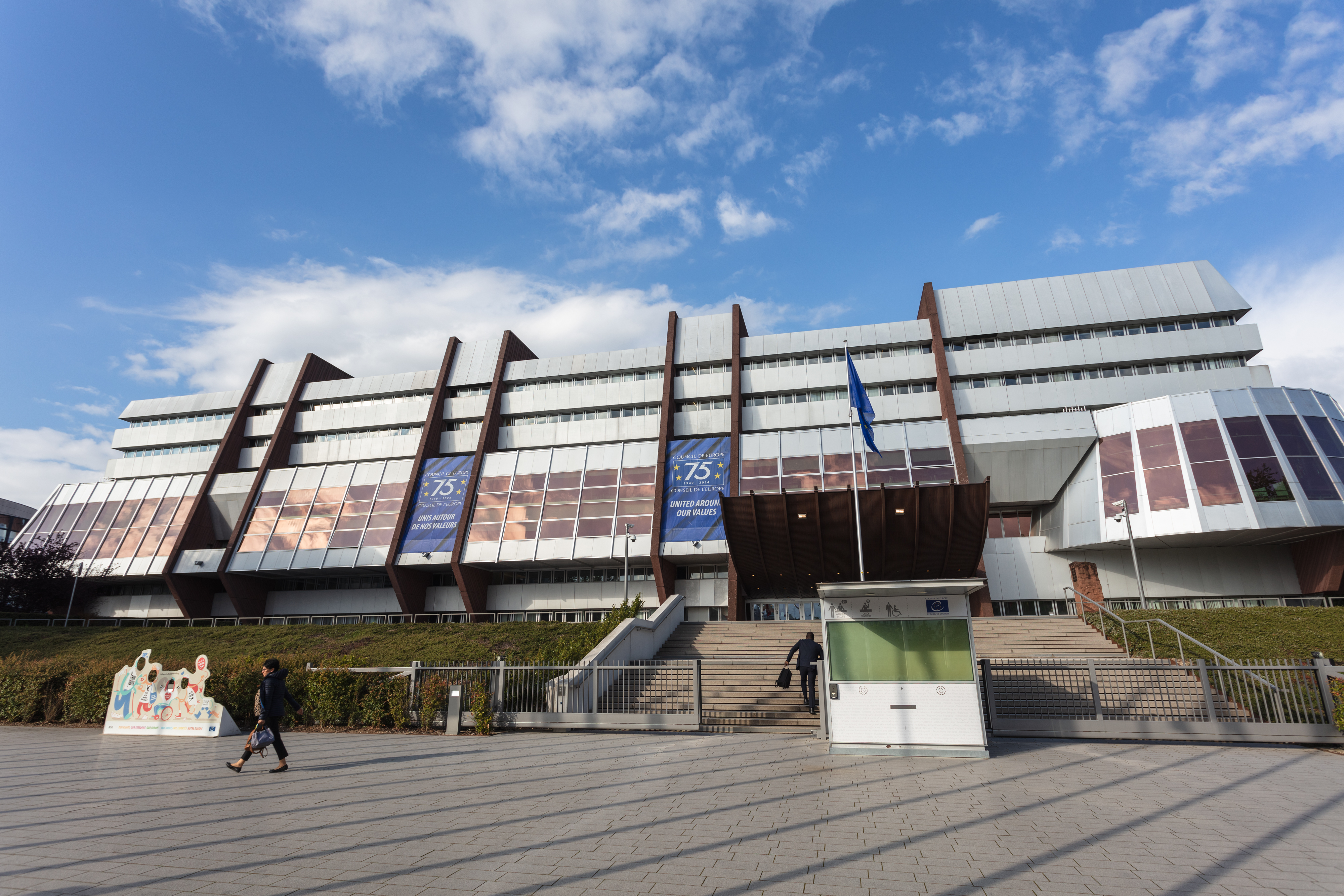

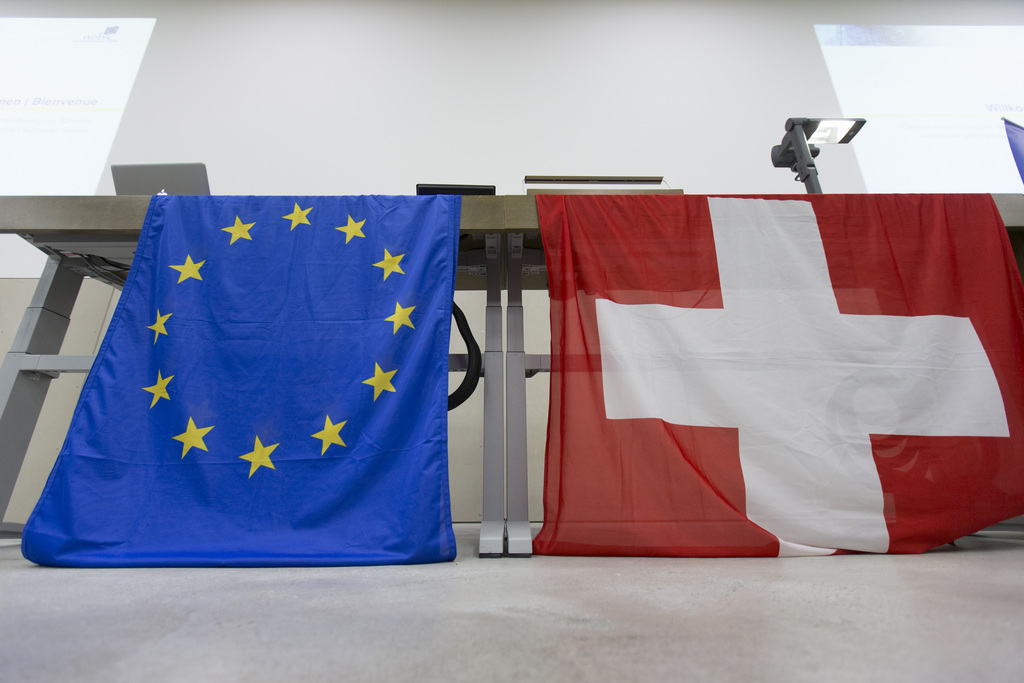
You can find an overview of ongoing debates with our journalists here . Please join us!
If you want to start a conversation about a topic raised in this article or want to report factual errors, email us at english@swissinfo.ch.